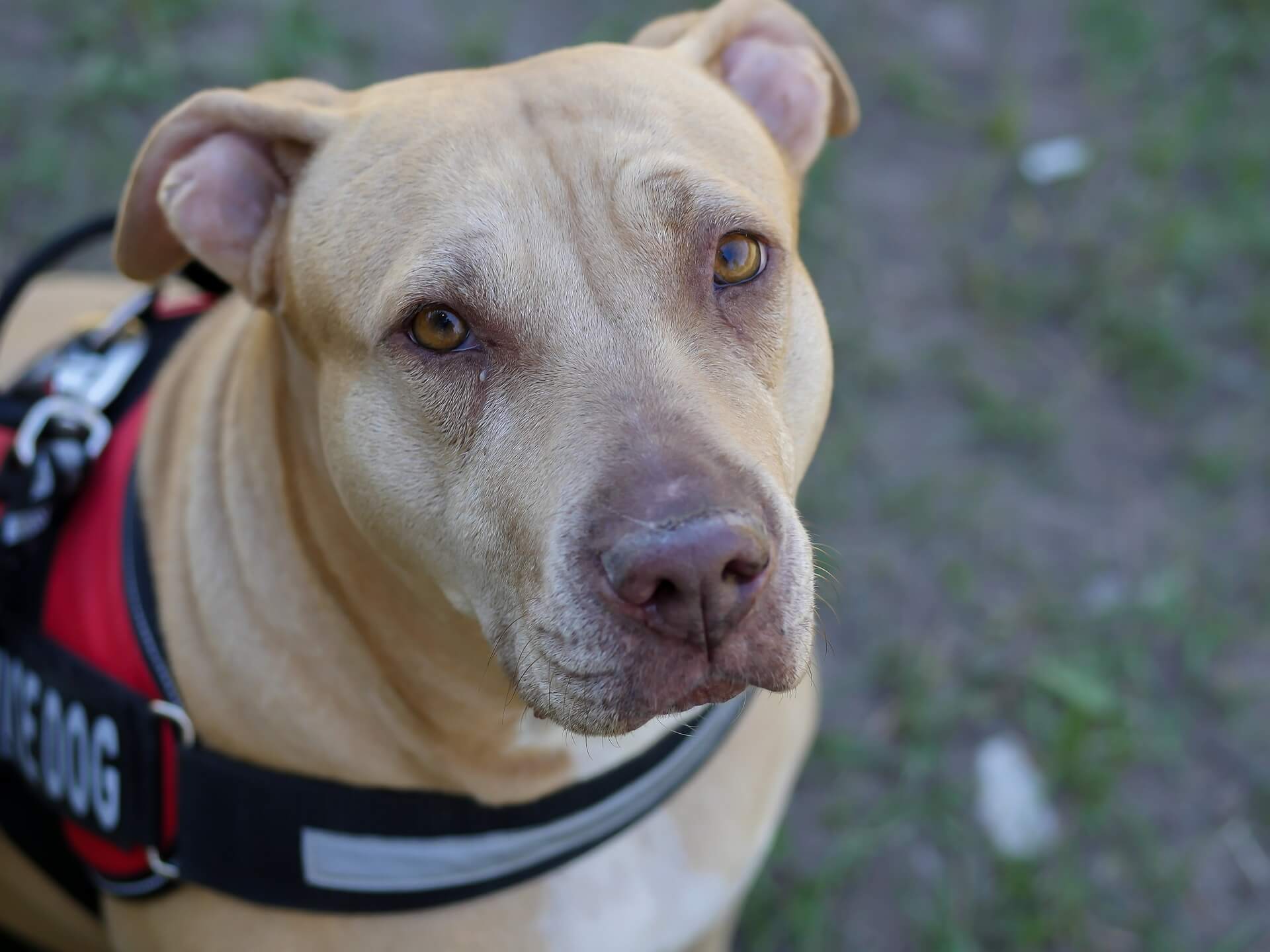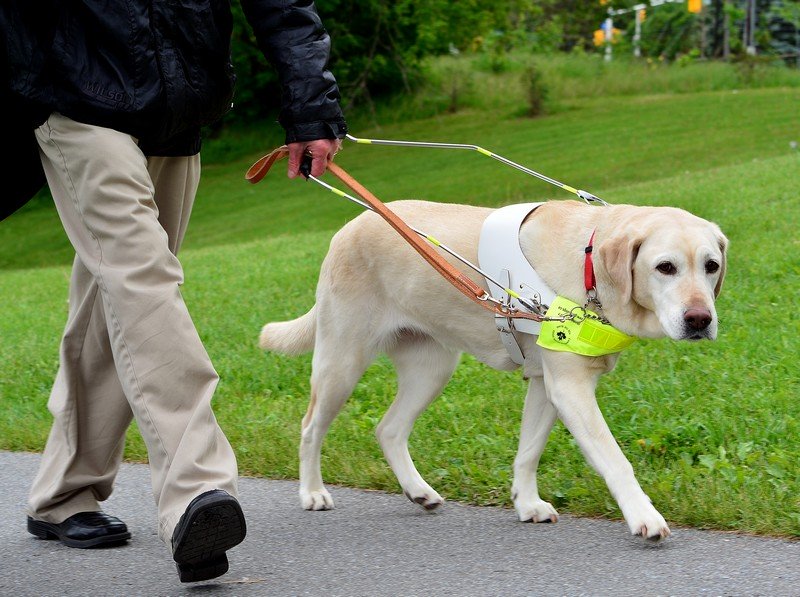2018-09-14

In many stores or shopping malls in America, you will find a sign “Service dogs are welcome” at the door. The guide dog is the most common type of service dog we know. But service dogs are not just for the blind. There are other types of service dogs for different people that are in demand. Dogs of all breeds and ages can be trained to become a service dog. After training, the dogs should be dressed in a ‘service dog’ vest to help others recognize that they are working dogs. Unlike normal dogs, service dogs that have undergone special training are responsible for following their owners almost anywhere and never run around and bark without the commands of the owners. The Americans with Disabilities Act (ADA) states that service dogs may enter public areas, government agencies, businesses, schools and hospitals, to accompany people with disabilities.
ADA Laws: (Original text)
• Service dogs are defined as the dogs individually trained to do work and finish tasks for disabilities.
• The dog should be trained to perform tasks or do work, directly related to the person’s disabilities. Also, varying from other animals, service dogs are unnecessary to qualify as service animals that provide emotional support under the ADA.
• According to the ADA, service animals are allowed to accompany people with disabilities, entering into all areas of facilities where the public are normally allowed, such as governments, businesses, and service organizations.
If you enter these places (mentioned above) with your dog without a ‘service dog’ vest, the staff of the facility may ask you two questions:
• Does the dog service to a disability?
• What special work has the dog been trained to perform?
With the exception of the two questions, the facility’s employees are prohibited from asking customers other questions, such as regarding their disability or request for identification.
A ‘service dog’ vest is a signal of a registered service dog. However, if the staff of the facility does not want to allow the dog access, you can show the support dog certification.
In certain situations, service dogs are not allowed:
• Disinfected environments such as an operating room.
• Religious sites such as churches and mosques; cultural institutions such as museums.
• Swimming pools (out of consideration for public health, service dogs can stay at the edge of the pool but are not allowed to swim with the owners.)
• Zoos and similar places where animals may agitate your dog and vice versa.
• If some environments stimulate service dogs and cause them to lose control, owners should take them away as soon as possible.
Types of service dogs
Service dogs are responsible for helping people with disabilities, besides blindness. The following gives an indication of what disabilities they can serve.
• For the blind
Guide dogs for the blind are the most common working dogs. They can guide blind people walking and climbing stairs.
 ( A guide dog is walking with its owner)
( A guide dog is walking with its owner)
• For the deaf
Hearing dogs can replace the ears of the deaf. They are trained to distinguish different sounds (such as doorbells, ringing telephones, and sirens) and to alert their owners.
• For the disabled
Service dogs for the disabled (persons with reduced mobility) help the owners pick up items, open the door or call for help.
• For diabetics
Service dogs for diabetics can detect tiny changes in the owner’s blood sugar levels and immediately send out warning signals reminding him to raise the blood sugar. This service dog is often in a special pocket on the owner's chest to smell the blood sugar changes.
• For epileptics
These service dogs can detect a seizure coming from the epileptic’s aura and prevent it by immediately alerting the owner to seek help.
• For emotional and behavioural disorders
Service dogs help people with severe emotional or mental illnesses that cause them to lose their vitality. In addition to supporting the owner in daily life, such service dogs can remind the owner to take medication and comfort the emotions of the owner. They differ however from the therapy dog and emotion dog.